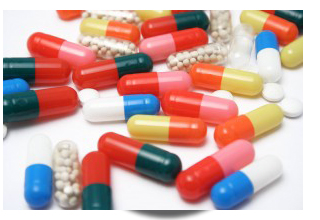Indian pharma commission to be 1st WHO collaborating centre for safety of medicines in SE Asia
Updated: Nov 04, 2015 04:07:18pm

The Minister said this while addressing the 38th Annual Meeting of Representatives of the National Pharmacovigilance Centres participating in the World Health Organization Programme for International Drug Monitoring, organized by the Indian Pharmacopoeia Commission (IPC) and World Health Organization (WHO), here today, according to an official release.
Nadda said that drug safety related issues pose a major challenge for healthcare professionals, regulators and pharmaceuticals industry and this is where Pharmacovigilance, plays a significant role in ensuring quality, safety and efficacy of medical products. Given the critical role that it plays, it is imperative that Pharmacovigilance is developed as an effective instrument for understanding and prevention of adverse effects or any other drug related problems. Pharmacovigilance is increasingly gaining significance in safeguarding public health in India also, the Minister added.
The Health Minister emphasized that that success of pharmacovigilance depends on state of art reporting, cutting edge use of information and communications technology to process and analyze information for immediate corrective measures. This needs to be supported by a highly calibrated audit process, he added.
He also said that building a strong pharmacovigilance frame-work in all countries is essential for ensuring public health outcomes which would require close collaboration between a large number of professionals and multi-constituency stakeholders - both nationally and internationally, and internationally recognized standards on pharmacovigilance.
The Minister applauded the WHO collaborating centres across the globe which serve as platforms for knowledge transfer and act as catalysts for developing the next level good pharmacovigilance practices and awareness of adverse drug reactions and their reporting. Establishment of a robust pharmacovigilance system and increasing its reach, quality and credibility is vital for development of safe medical products, he added.
India is committed to ensuring patient safety in the country and to building strong working relations with other countries with respect to healthcare system, including pharmacovigilance system, the Minister affirmed.
He said the Government of India launched the Pharmacovigilance Programme in 2010 to address the impact of Adverse Reactions on patients. This programme has created a nation-wide system for patient safety reporting, to identify and analyse risk benefit ratio of marketed medicines, to generate evidence on safety of medicines and to support regulatory agencies in decision making, he added.
The Health Minister said that our efforts have gained momentum after the Indian Pharmacopoeia Commission was notified as the National Coordination Centre for pharmacovigilance. To monitor Adverse Drug Reactions, Pharmacovigilance Programme of India has set up 179 Centres. Adverse Drug Reactions are reported to Indian Pharmacopoeia Commission, which works in collaboration with global Adverse Drug Reaction monitoring centre, Sweden to contribute to the global Adverse Drug Reactions data base, the Health Minister said.
The Minister said that we need to continue promoting generic drugs. However, what we need to doubly ensure is these are of high quality and efficacy. This is the only way we can increase accessibility of such drugs. India is also in the process of implementing free drugs initiatives across the country so that those who cannot afford are able to get the high quality drugs. (KNN Bureau)












